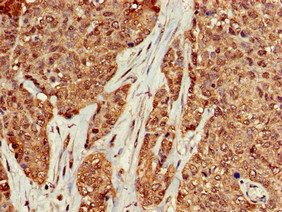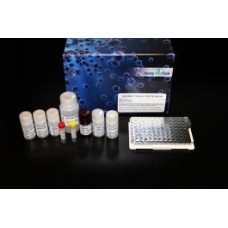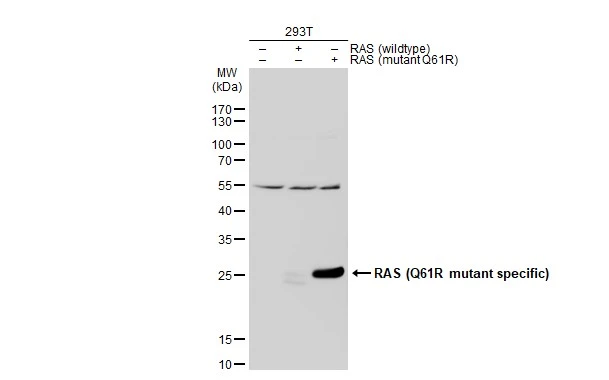cK-Ras antibody [234-4.2]
GTX82497
ApplicationsImmunoPrecipitation, Western Blot, ImmunoHistoChemistry, ImmunoHistoChemistry Frozen, ImmunoHistoChemistry Paraffin
Product group Antibodies
ReactivityHuman, Mouse, Rat
TargetKRAS
Overview
- SupplierGeneTex
- Product NamecK-Ras antibody [234-4.2]
- Delivery Days Customer9
- Application Supplier NoteFor IHC-Fr: Use at a concentration of 10 microg/ml. For IHC-P: Use at a concentration of 10 microg/ml. For IP: Use at an assay dependent dilution. For WB: Use at a concentration of 5 microg/ml. Optimal dilutions/concentrations should be determined by the researcher.
- ApplicationsImmunoPrecipitation, Western Blot, ImmunoHistoChemistry, ImmunoHistoChemistry Frozen, ImmunoHistoChemistry Paraffin
- CertificationResearch Use Only
- ClonalityMonoclonal
- Clone ID234-4.2
- Concentration0.1 mg/ml
- ConjugateUnconjugated
- Gene ID3845
- Target nameKRAS
- Target descriptionKRAS proto-oncogene, GTPase
- Target synonyms'C-K-RAS, C-K-RAS, CFC2, K-RAS2A, K-RAS2B, K-RAS4A, K-RAS4B, K-Ras, K-Ras 2, KI-RAS, KRAS1, KRAS2, NS, NS3, OES, RALD, RASK2, c-Ki-ras, c-Ki-ras2, GTPase KRas, K-ras p21 protein, KRAS-ENOPH fusion, Kirsten rat sarcoma viral oncogene homolog, Kirsten rat sarcoma viral proto-oncogene, Kras-Enoph1 fusion protein, PR310 c-K-ras oncogene, c-Kirsten-ras protein, cellular c-Ki-ras2 proto-oncogene, cellular transforming proto-oncogene, oncogene KRAS2, proto-oncogene GTPase, transforming protein p21, v-Ki-ras2 Kirsten rat sarcoma 2 viral oncogene homolog
- HostMouse
- IsotypeIgG2a
- Protein IDP01116
- Protein NameGTPase KRas
- Scientific DescriptionThis gene, a Kirsten ras oncogene homolog from the mammalian ras gene family, encodes a protein that is a member of the small GTPase superfamily. A single amino acid substitution is responsible for an activating mutation. The transforming protein that results is implicated in various malignancies, including lung adenocarcinoma, mucinous adenoma, ductal carcinoma of the pancreas and colorectal carcinoma. Alternative splicing leads to variants encoding two isoforms that differ in the C-terminal region. [provided by RefSeq, Jul 2008]
- ReactivityHuman, Mouse, Rat
- Storage Instruction2°C to 8°C
- UNSPSC41116161






![Various whole cell extracts (30 μg) were separated by 12% SDS-PAGE, and the membrane was blotted with RAS (G12D Mutant) antibody [HL2640] (GTX639096) diluted at 1:1000. The HRP-conjugated anti-rabbit IgG antibody (GTX213110-01) was used to detect the primary antibody.](https://www.genetex.com/upload/website/prouct_img/normal/GTX639096/GTX639096_45257_20231215_WB_23121922_250.webp)
